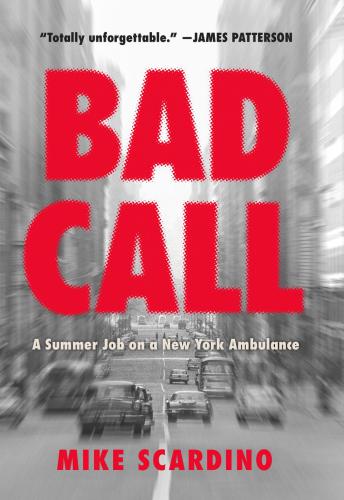
Bad Call
A Summer Job on a New York Ambulance
شغل تابستانی در یک آمبولانس در نیویورک
کتاب های مرتبط
- اطلاعات
- نقد و بررسی
- دیدگاه کاربران
نقد و بررسی

May 15, 2018
Ambulance work is not for the squeamish, and neither is reading about it.In the late 1960s, Scardino worked on a New York hospital's ambulance crew in order to pay for his college tuition. He started on the pre-med track, but by the end of his ambulance job, he had no interest in becoming a doctor. "The truth is, I don't want to be around the injured, sick and dying any more than I can help it," he writes. It's easy to see why the job soured his stomach for medicine. In one gruesome passage, he describes a body barely recognizable as such: "Where his hair ought to have been, there appeared to be long gray and white filaments of mold. Instead of a face, there was a flat, oval plane covered with maggots. No sign of a nose. Just one wet, gray surface with its seething, ivory-colored veneer of larvae." Readers may wonder if Scardino took detailed notes or wrote the entire book decades ago. The latter seems doubtful; it doesn't seem likely that an admittedly poor student would have had such command over his material as a teenager and then decide to let it sit for decades. Perhaps he told these vivid stories often enough that somebody persuaded him that there was a book in them and he re-created the stories from memory. The author claims that he could never forget them, and readers will have trouble doing so as well. There's a baby thrown from a window, a drug overdose, morbidly obese people who had to be maneuvered out of apartments and into ambulances, and one crashed-and-burned airplane. Scardino, who has since pursued a career in advertising, emerges as a different person at the end of these experiences than he was when he began the work. "Something in me had changed, not for the better, but surely forever," he writes.Some say that everybody has a book in them, and this author has found his in this memorable, often grim work.
COPYRIGHT(2018) Kirkus Reviews, ALL RIGHTS RESERVED.

Starred review from May 21, 2018
In this fresh and powerful debut memoir, Scardino looks back on his summers during college in the late 1960s when he worked as a New York City hospital ambulance attendant. Working 56 hours a week—“Nights and days, whenever they need me”—Scardino recounts in short chapters the many emergencies he witnessed and assisted in that showed him “the entire catalog of horrifying things that can happen to a human body.” From accidental deaths to suicides, Scardino writes with the detail of a crime reporter (“What had been his left side had grown into the carpet. Just coalesced with the carpet.... Instead of a face, there was a flat oval plane covered with maggots”). Scardino admits that what bothers him “more than seeing how people die, is seeing how people live”: in one example, he describes a diabetic woman whose legs are gangrenous below the knees, who weighs over 400 pounds, and who needs somehow to be carried down from her second-floor apartment. “If there’s one thing I’ve learned on the job,” he writes, “it’s that any call, anywhere, can always get worse.” Scardino’s unsparing memoir offers an empathetic look at human pain and suffering.

























دیدگاه کاربران